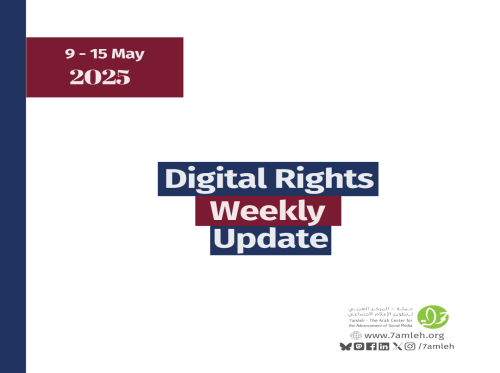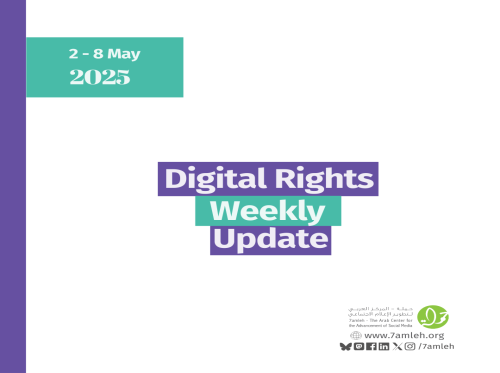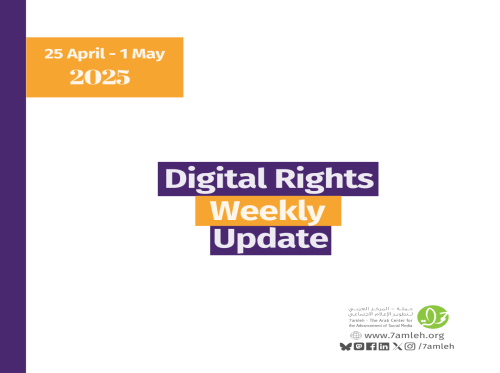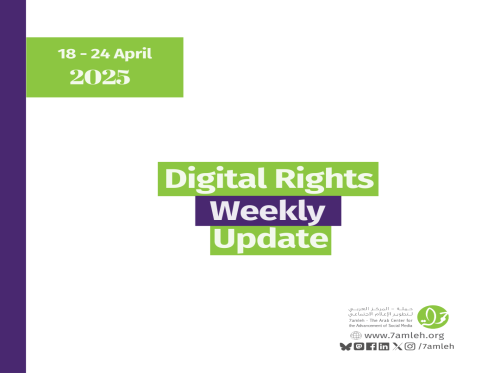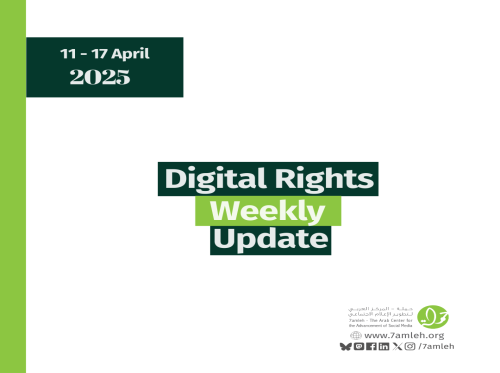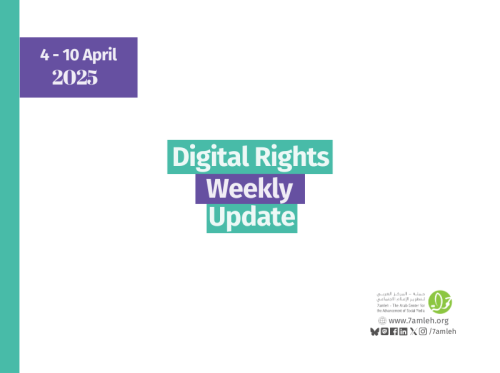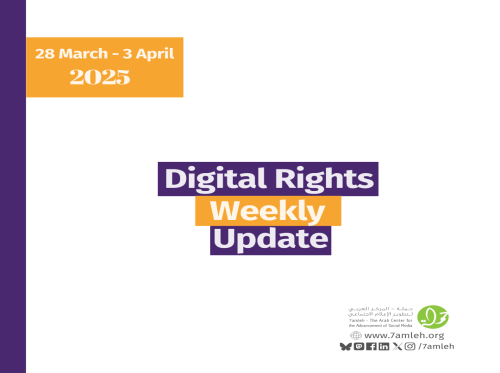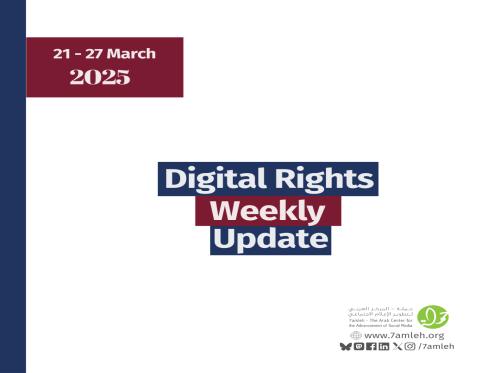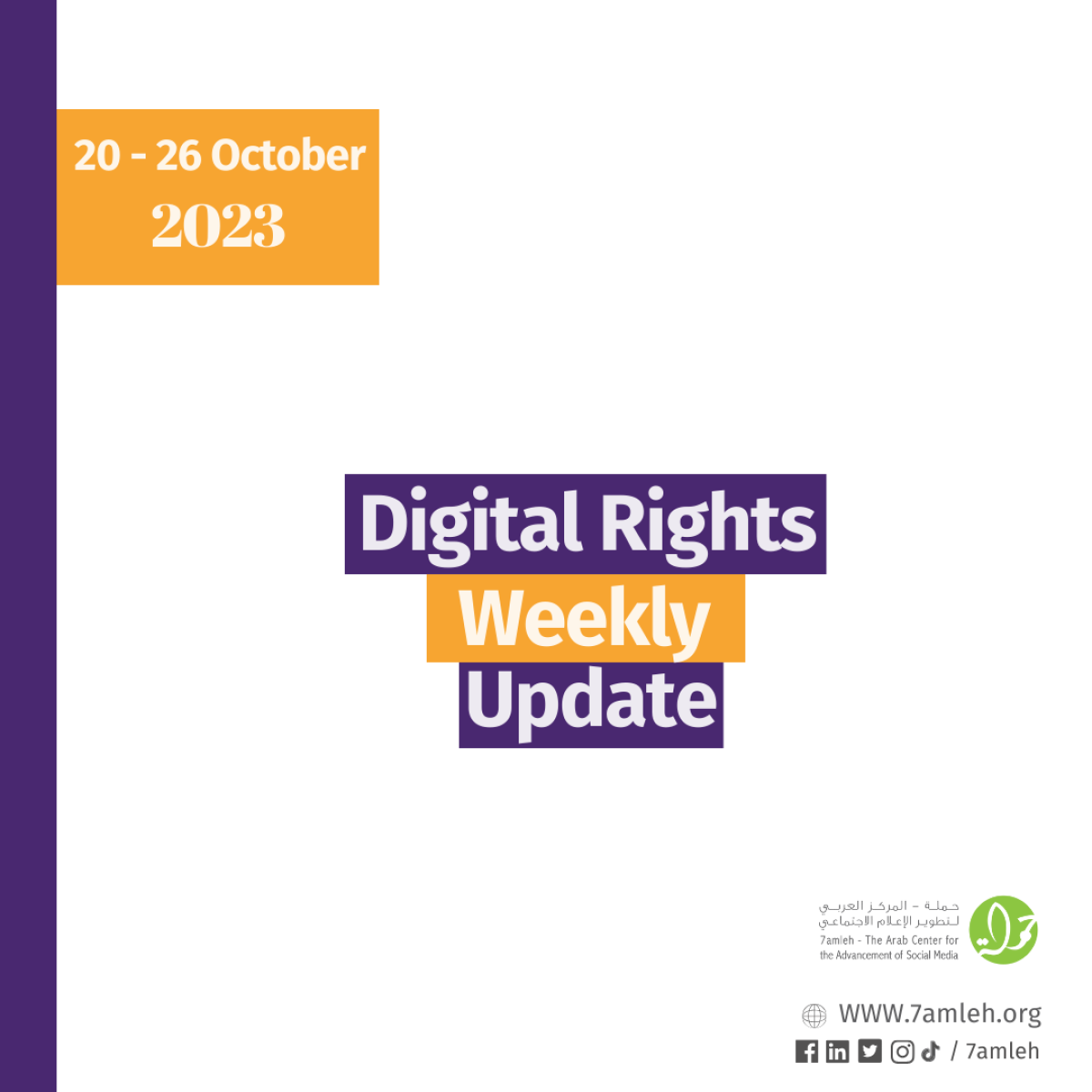
1.
Tainted Narratives: Tech Giants Harming Users in War Time (English)
The Tahrir Institute
Over the past decade, tech companies like Meta, which envisioned “connecting the world,” and X (formerly known as Twitter), with its noble claim of “defending and respecting the user’s voice,” have heralded a vision of a technological utopia. However, this lofty narrative, although increasingly unfulfilled, not only hides the potential harms these tech giants can inflict, but also masks the deep-rooted global inequality crisis.
2.
Social Media Platforms Under Fire: Are Pro-Palestinian Voices Being Silenced? (English)
Financial World
Despite these explanations, civil rights groups remain unconvinced. This month saw 48 organizations, including 7amleh (the Arab Centre for Social Media Advancement), urging tech giants to honor Palestinian digital rights, especially in the backdrop of the ongoing conflict. The collective statement voiced deep concerns, stating, “We are [concerned] about significant and disproportionate censorship of Palestinian voices through content takedowns and hiding hashtags, amongst other violations”.
3.
Crackdown on Freedom of Speech of Palestinian Citizens of Israel (English)
Adalah
This paper outlines the various ways in which Palestinian citizens of Israel are currently facing severe suppression and political persecution. These measures include the targeting of PCI students within Israeli academic institutions, job terminations and the suspensions of Palestinian workers, mass unlawful arrests and detentions related to social media posts, a police ban on solidarity protests with the Palestinian people in Gaza, the suppression of speech of Palestinian lawyers, and incitement against representatives of Palestinian political parties, including an expulsion of a Member of Knesset from the Israeli parliament for his speech. These measures together constitute a draconian crackdown on the free speech rights of PCI and political persecution against them as a group.
4.
Mondoweiss
The arbitrary arrest of Abu Amneh over her Facebook post is the latest in a campaign of targeted harassment by Israeli authorities, institutions, individuals, and right-wing groups against Palestinian citizens of Israel and Palestinian residents of occupied Jerusalem, who, due to the nature of where they live, are more entrenched in Israeli society, public spaces, and workplaces than Palestinians in the West Bank and Gaza.
5
LinkedIn Issues Warning to Site Shaming Pro-Palestinian Sentiment (English)
NYT
Over the last 10 days, a website called anti-israel-employees.com published more than 17,000 posts, which one of the people behind the site said had been taken mainly from LinkedIn. The site, which claimed to be a “global live feed of potentially supportive sentiments for terrorism among company employees,” listed thousands of people and grouped them by their workplaces, in an apparent attempt to shame them for their sentiments on the Israeli-Hamas conflict.
6
‘An atmosphere of fear’: free speech under threat in Israel, activists say (English)
The Guardian
Two activists from a Jewish-Arab peace movement were recently detained in Israel for putting up posters with a message that the police deemed to be offensive. The message was: “Jews and Arabs, we will get through this together.” The activists, members of Standing Together, had their posters confiscated, as well as T-shirts printed with peace slogans in Hebrew and Arabic. It was not an isolated incident. Across Israel, people are being detained, fired from their jobs, and even attacked for expressing sentiments interpreted by some as showing sympathy for Hamas.
7
Palestinians Claim Social Media ‘Censorship’ Is Endangering Lives (English)
Wire
With the situation on the ground constantly in flux, social media is a lifeline. People stay informed via a patchwork of videos, text posts, and voice notes, along with official statements from government agencies. But getting information within Gaza, and getting information out of Gaza, has become increasingly difficult. Internet and electricity services have been disrupted by attacks. Last Friday, Israel vowed to cut Gaza’s access to the internet. Since then, services have been intermittent. Exacerbating this, Palestinians and their supporters allege that social media platforms—particularly Instagram, which is a critical communications tool in Gaza—are “shadow-banning” their content—algorithmically deprioritizing it so it’s harder to find, or actively over-moderating it. Instagram’s owner, Meta, denies this is happening, calling the issues “a glitch," but this alleged phenomenon has been documented for years. These information blackouts could deepen the suffering of those fleeing the fighting, or in the firing line.
Related Articles
Subscribe to Our Email Alerts
And stay updated with our latest activities, news, and publications!

